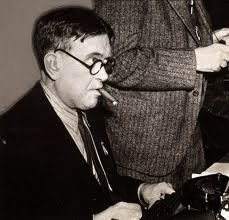It's game on! at the symphony this weekend

Wearing the old-maestro mantle is not composer William Bolcom's style. In his newest piece, at least, there is no autumnal quality, no mellow summing-up or assumption of an elder-statesman pose. It's just as well his muse is cheeky, given the difficult position classical music occupies in the larger culture. Newly turned 75, Bolcom never seems to have cared for categorical thinking in musical theory or practice. Why should he start now? Games and Challenges: 'Something Wonderful Right Away received its world premiere Friday night from Time for Three and the Indianapolis Symphony Orchestra, conducted by music director Krzysztof Urbanski. The work looks backward only insofar as its inspiration is Bolcom's involvement a half-century ago with the improvisational-theater ideas that led to Second City and many less famous applications of games and spontaneous scenes. It's not about nostalgia, but rather the fresh application of some durable performance ideas. Applie







